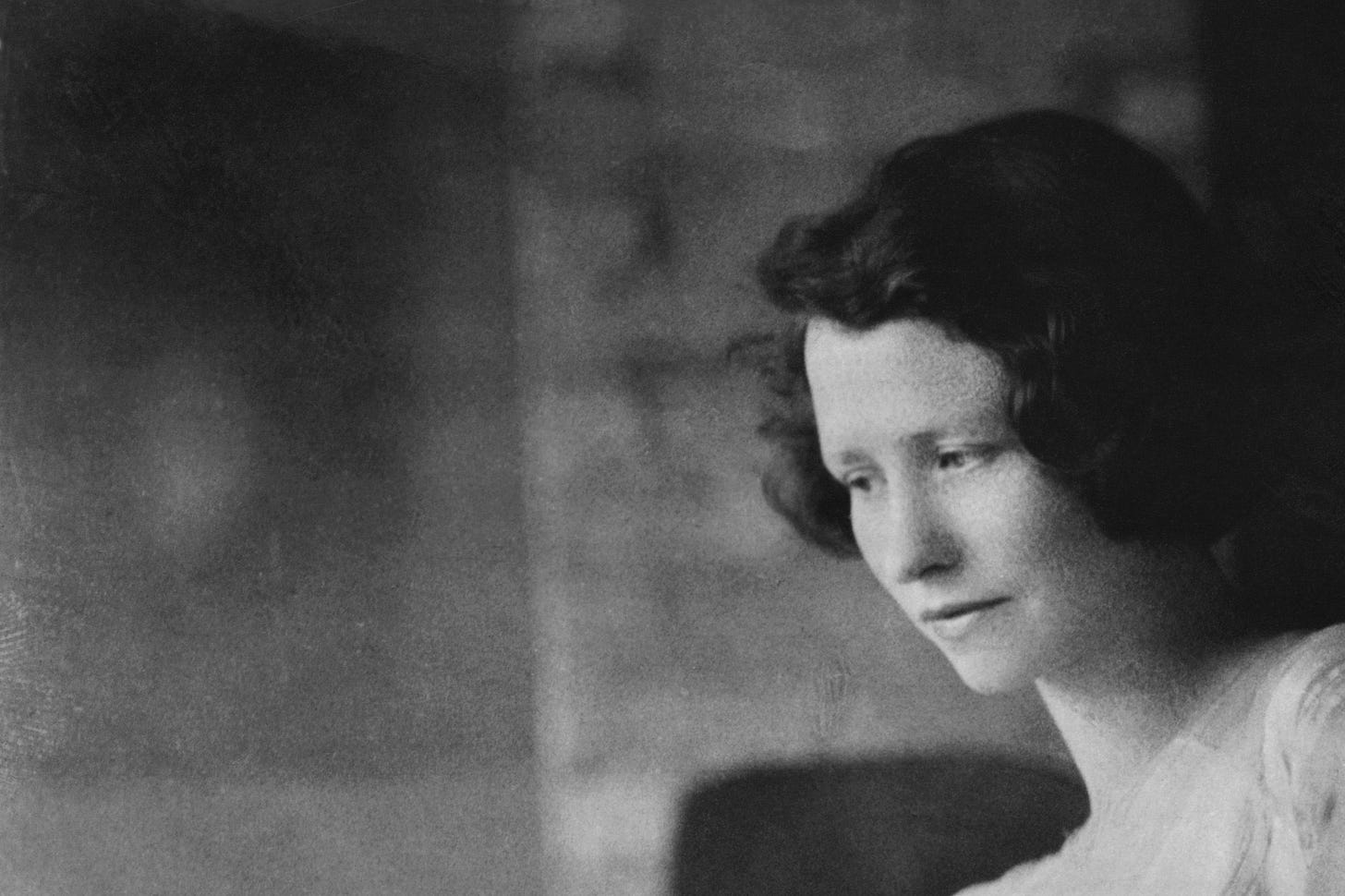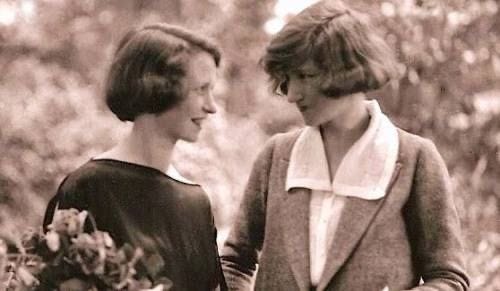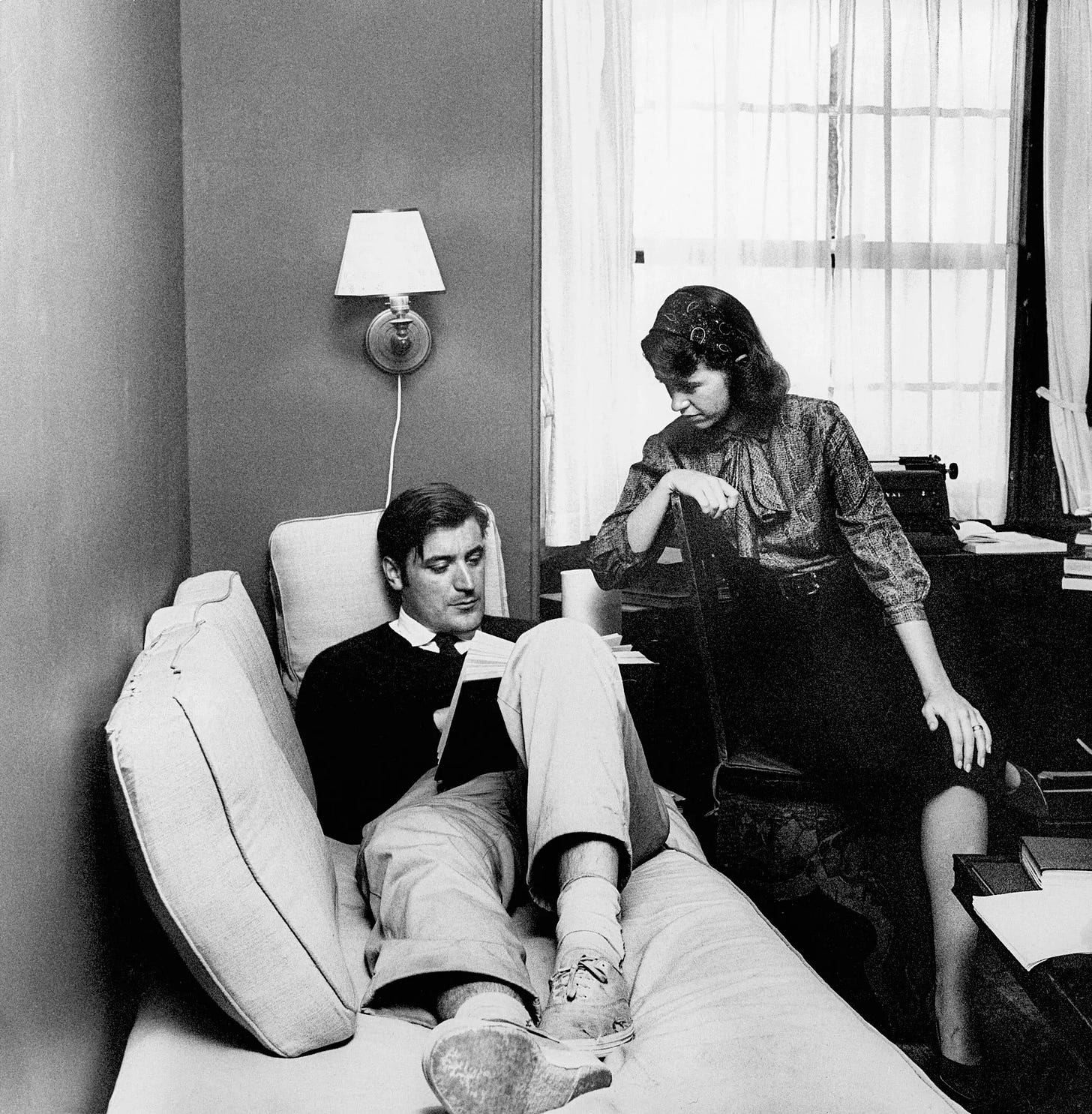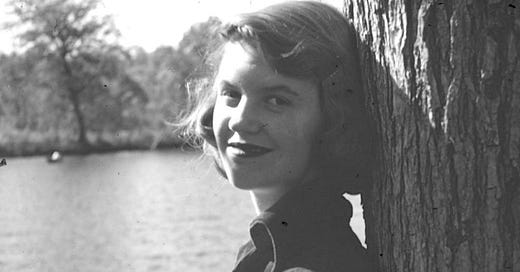Is It Ethical To Publish Deceased Authors Personal Journals And Diaries?
I attempt to answer this question by using two of my favorite writers as examples.
Three summers ago, I was nineteen and worked as a gatekeeper for a gated community’s swimming pool, where I submerged myself entirely in Sylvia Plath's published journals titled The Unabridged Journals of Sylvia Plath. Reading that book for the first time felt like a turning point for me. It was a book I had randomly pulled off the shelf of an old bookshop in downtown Venice, Florida. I was curious about it because I remembered reading Plath's poems two years prior in my high school literature class. Plath’s diaries ultimately ignited a lifelong interest in literature and in Plath herself. The book was a page-turner and impossible to put down. It gave me an intimate view into the mind of one of literature's most famous figures
Now, at twenty-two, I’m under the spell of yet another literary icon as I attempt to read the diaries of Edna St. Vincent Millay. Millay’s diaries were published just two years ago, a little over seventy years after her death. When I began to read the foreword to Millay’s diary yesterday, I was caught off guard, and my eagerness to dive into the pages faded. My eagerness turned into guilt at the intrusion into the mind of this poetess I’ve come to adore.
In the recently published collection of Millay’s diaries titled Rapture and Melancholy: The Diaries of Edna St. Vincent Millay, edited by Daniel Mark Epstein, the foreword by Holly Peppe immediately addresses how Millay might have felt about having her diaries read by others. A fifteen-year-old Millay states:
“whosoever, by stealth or any other underhand means, opens these pages to read, shall be subject to the rack,the guillotine, the axe, the scaffold, or any other form of torture I may see fit to administer.”
Millay didn’t stop there with her strict warning in this journal entry dated July 18th, 1907, she continued…
“I am going to have some place where I can write my joys and sorrows, my benedictions and anathemas, without fear of scorn or censure. I’m going to write exactly what I think.- I'm going to say exactly what I think, and if people come eavesdropping they may ferret out certain phrases slightly ungratifying to their vanity. I don’t care if they do. They needn’t be nosing around. “

Taking Millay's words into consideration, I haven’t been able to read beyond her warning entry, despite my curiosity begging me to. Millay’s scolding words read as a searing ultimatum that has traveled one hundred and seventeen years: respect my privacy, or else! This leaves me pondering the question: Is it ethical to read the published diaries of deceased authors? My initial argument was that, if granted permission by still-living family members, the publishing of personal entries and musings should be allowed. Personal diaries and journals differ from biographies in the sense that they act as windows through which readers can directly view the lives of these writers as life HAPPENED to them. Each present and personal moment described by the writers themselves allows for the best possible understanding and interpretation of their other works, whether they are novels or poetry. The diaries serve as a time machine for history. It is much more intimate, and dare I say, interesting to read a writer's own accounts of their lives from their perspective than it is to read about their lives from a biographer's perspective.
Norma Millay, Edna’s younger sister and the only living family member after her death, inherited Edna’s estate, including her diaries and other unpublished works. In the introduction to Millay’s diaries, Peppe mentions that Norma had allowed her the opportunity to not only read but also transcribe Millay’s diaries. Peppe writes…
“I first read selections from the diaries in 1984, sitting on a faded cream-colored sofa embroidered with exotic birds and flowers in Millay’s living room at Steepletop, sipping Cointreau with Norma, who was then ninety, as we translated the poet’s leggy scrawl one line at a time.”

Millay and her sister were incredibly close throughout her lifetime, so one with a knowledge of Millay’s history and life, perhaps, might feel more at ease knowing that in the last few months of Norma’s life, she had allowed her sister's diaries to begin being prepared for publication. We can assume that even in her old age, Norma still had the best interests of Edna’s legacy at heart. But what about the case of Sylvia Plath, whose writings fell into the hands of her abusive ex-husband, Ted Hughes, and his sister, Olwyn Hughes, after her death? Hughes admitted to burning Plath’s final diary entries, along with two unpublished novels, whose titles we only know of because she mentioned them in her journals: Falcon Yard and Double Exposure. In the publisher's note at the front of Plath’s journals, written by Karen Kukil, it states…
“In the years before his death, Ted Hughes was working towards the publication of Sylvia Plath’s unabridged Journals both in Britain and America. In 1997 he passed the responsibility for the project to his children, Frieda and Nicholas, who had already held the copyright for some time. To this end, he authorized the opening of the journals that he had previously sealed.
Frieda and Nicholas entrusted the task of editing the book to Karen Kukil, Associate Curator of Rare Books at Smith College, Massachusetts. The project continued under the guidance of Ted Hughes until his death in October 1998, and was completed in December 1999.”
Can we, as readers, with the information we have of Hughes' past and treatment of Plath during her life, continue to read her journals with the consciousness that they were published by someone who had her best interest at heart, as we could assume with Norma Millay? And with Hughes' admission of burning her other writings, how can we trust the journals he has allowed to be published paint a truthful and whole picture of Plath’s life, especially considering the possibility that the journals from the last few months of her life “disappeared”? These are questions that are impossible to answer without the writer themselves alive here in front of us, for us to ask to their face, “Is it okay for us to read your most personal writings?” However, despite these rebuttals, the argument still stands: the diaries and journals of deceased authors provide us with the best insight into their minds and creative processes, and additionally serve as important pieces for literary history overall.

Yet, when I revisit Plath’s journals now, three years later, and read an entry that is particularly personal and explicit, I can’t help but cringe, imagining myself in her shoes, having family members or even strangers read my often angst-filled and overly dramatic journal pieces. However, there is something to be found in her journals —a certain comfort in knowing that, across time and history, one of the most influential literary figures experienced emotions, thoughts, and situations similar to your own.
I’m transported back to three years ago, working at that pool, feeling bored with my life and eager to be anywhere besides Ohio, but with no idea of who to be, where to go, or what to do. This entry from Plath’s journal, written when she was the same age as me at the time, spoke to me then and still does to this day.
“What is my life for and what am I going to do with it? I don’t know and I’m afraid. I can never read all the books I want; I can never be all the people I want and live all the lives I want. I can never train myself in all the skills I want. And why do I want to? I want to live and feel all the shades, tones, and variations of mental and physical experience possible in my life. And I am horribly limited. Yet I am not cretin: lame, blind and stupid. I am not a veteran, passing my legless, armless days in a wheelchair. I am not that old man shuffling out of the gates of the mental hospital. I have much to live for, yet unaccountably I am sick and sad. Perhaps you could trace my feeling back to my distaste at having to choose between alternatives. Perhaps that's why I want to be everyone- so no one can blame me for being I.”
So as I sit here today now with Edna St. Vincent Millay’s diaries in front of me, I know for certain they must contain similar and new wisdom tailored to this very era of my life, living in a new city and working my first “grown-up” jobs. Yet, even with her sister Norma’s permission, I still struggle to reopen the book and continue reading. Fifteen-year-old Edna’s voice echoes in my head, her warning not to trespass into the waters of her private mind. Without permission from the writers themselves, how can we ever be sure that we are not intruding and betraying our admiration and respect for them?
What do you think? Is it ethical to read and publish the personal diaries and journals of already deceased authors?
Books mentioned in this article:
Unabridged Journals Of Sylvia Plath
Rapture And Melancholy: The Diaries Of Edna St Vincent Millay





I think the circumstances matter greatly. In those terms, I can only speak to Plath, because those are the circumstances I know the most about. I think the publication of her Unabridged Journals was about as ethical as that kind of publishing can be, in that her children were in charge of it, once their father died, and the editor (Karen Kukil) had decades of training in transcription and archival studies, and had been in charge of Plath's papers at Smith College for a long time, by then.
Moreover, Plath was very clear about her aims, as a writer-- she was writing with the ambition of being widely read and revered, and actually says many times in her letters that probably someday these will be published. She doesn't, to the best of my memory, say that in her diaries, but it's hard for me to imagine her being dismayed that she's become an iconic writer and cultural figure.
One quick note-- no one accused Hughes of burning or losing the last diaries or Double Exposure. He admitted to doing both, actually, in two different published essays, the first of which acted as the Foreword to Plath's Journals, a heavily abridged edition he published and edited in 1982. So, not an accusation. Just his own words. I can send you a scan of the essays, if you want to read them.
There are people who have consented to have their diaries released. I think that may have been Joan Didion’s choice knowing what we know of her. I don’t feel comfortable reading people personal diaries unless they made the choice themselves. Kafka wanted his burned and they still released them.